The EMC European Medical Center hosted a round table "Pregnancy after IVF: facts and myths". Yulia Voznesenskaya, Head Clinics of reproductive and prenatal medicine, talked about artificial insemination and pregnancy after IVF. Read the answers to the most relevant and interesting questions that were discussed at the event in this article.
What is the difference between natural pregnancy and pregnancy after IVF?
The difference between pregnancy resulting from ЭКО from natural pregnancy – only in the method of conception and special supportive therapy. During in vitro fertilization, an embryo is transferred into the uterine cavity. In order for it to be implanted, the doctor prescribes hormone therapy. After its cancellation, IVF pregnancy management is no different from normal pregnancy management. That is why many women who become pregnant with IVF and receive the results of the first screening begin to be monitored by a doctor at their place of residence.
Undeveloped or biochemical pregnancy after IVF - what should I do?
Pregnancy that is spontaneously interrupted within two embryonic weeks is called undeveloped or biochemical. This is a separate topic, around which the bulk of the tall tales revolve. At the same time, the couple's examination plan is clearly defined in the world of evidence-based medicine. It necessarily includes: karyotype of both spouses, spermogram analysis, hormonal screening of both spouses, screening for antiphospholipid syndrome (APS), examination of the condition of the uterine cavity. In addition to medical research, lifestyle adjustments are necessary: overweight, smoking should be discontinued, and alcoholic beverages should be discontinued. If a woman's abdominal circumference exceeds 80 cm and a man's 93 cm, the quality of germ cells is significantly reduced - under no circumstances will it be possible to achieve high rates of pregnancy in IVF programs.
Genetic polymorphisms of the hemostasis system – the reason for IVF program failures?
There is not a single evidence-based study that supports the view that the presence of polymorphisms is the cause of IVF program failures, implantation pathology, biochemical pregnancies, or pregnancy losses in the first trimester. The carriage of the Leyden mutation polymorphism and factor 2 shows a connection with the pathology of pregnancy in the second trimester and requires appropriate therapy.
Preimplantation genetic diagnosis (PGD/NPT) - what is the essence?
Preimplantation genetic diagnosis allows to obtain complete information about transferred embryos, but, unfortunately, it does not increase the probability of pregnancy in any way. A noninvasive prenatal test in early pregnancy (NPT), in turn, makes it possible to diagnose not only karyotype pathology, but also imprinting diseases that are "not visible" either during amniocentesis or chorionic biopsy. If, for one reason or another, the question arises of determining the genetic health of the embryos, GEMC specialists select the most appropriate diagnostic method for each pair.
What is the threat of antiphospholipid syndrome?
Antiphospholipid syndrome (APS) is an autoimmune disease in which the body produces antibodies to phospholipids, components of cell walls. As a result of this process, blood clots (thrombosis) appear in the arteries and veins. During pregnancy, there is a high risk of their formation in the placenta, which can lead to a delay in fetal development, and in some cases, to its death.
AFS is a very serious rare disease, and it has clear diagnostic and clinical criteria that allow a doctor to identify or deny its presence. Unfortunately, the pathological practice of overdiagnosis of this condition has developed in our country, when the patient receives the stigma of "Acquired thrombophilia", along with unjustified treatment, the prognosis of pregnancy and gestation. During the round table, Yulia Voznesenskaya told in detail who really needs to take an analysis for the API search, and how it should be interpreted.
What is isthmic-cervical insufficiency (ICN)?
The cervix is a very strong muscle that holds a baby in the uterus for 40 weeks. In some cases, this force is not enough and it is necessary to resort to medical manipulations – the imposition of preventive cerclage (suturing of the uterus). Neither the IVF program in the patient's anamnesis, nor the presence of multiple pregnancy are indications for this procedure.
The risk factors for developing ICN are:
-
pregnancy loss in the 2nd trimester in the patient's anamnesis,
-
cervical injuries (LEEP, cervical biopsy, abortions, trachelectomy),
-
uterine malformations,
-
polycystic ovary disease,
-
ascending infections of the lower genital tract.
The need for cerclage is determined not only and not so much by the ultrasound measurement of the length of the cervix, as by the patient's medical history.
Childbirth after IVF: caesarean section or on your own?
If there are no medical contraindications for the mother or child, then childbirth after IVF takes place naturally, if there are obstetric risks, then it is done caesarean section. To date, the IVF program is not an indication for a cesarean section. Patients of the Clinic of Reproductive and Prenatal Medicine give birth to their babies based on knowledge of the principles of classical obstetrics, which means that a properly and timely IVF program will not burden the obstetric history in any way - in 1-2 years their uterus will be ready to repeat this feat, to give a new life!
If you have any questions about IVF and pregnancy after IVF, you can leave them in the appropriate section. Our experts will be happy to respond!
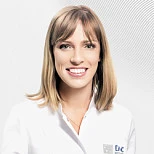





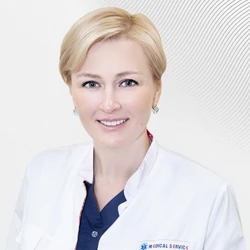

.webp)
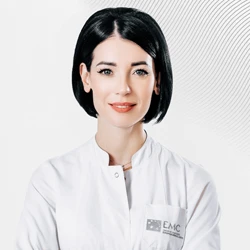
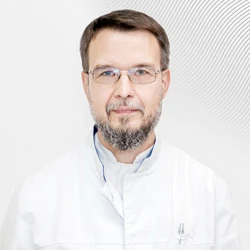
.webp)
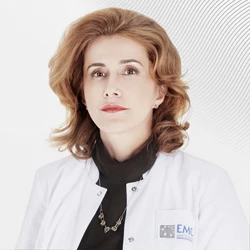
.webp)
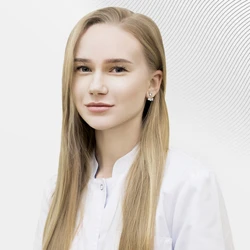
.webp)
